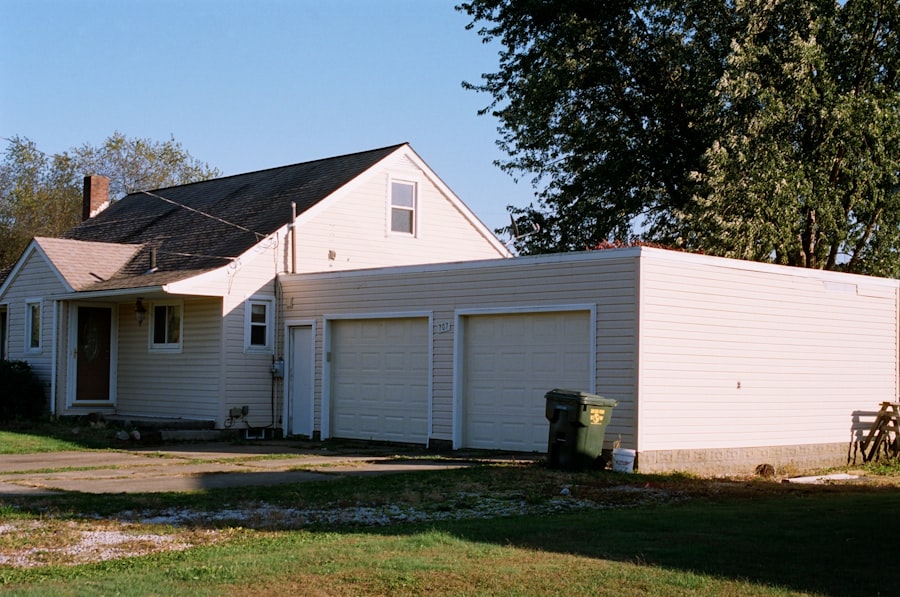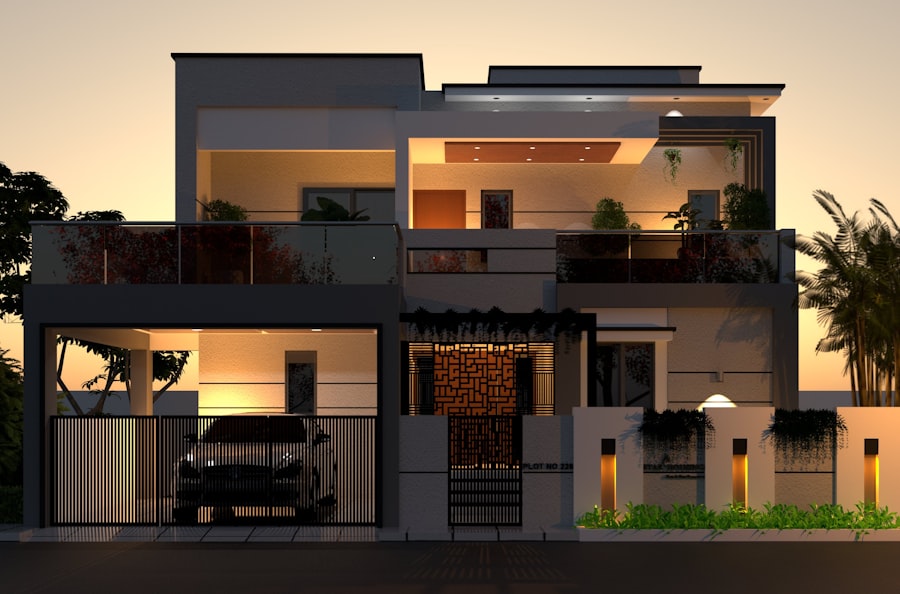The distinction between manufactured homes and traditional homes is fundamental for prospective buyers. Manufactured homes, often referred to as mobile homes, are built in a factory setting and transported to their final location. This construction method allows for a streamlined building process, often resulting in lower costs compared to traditional homes, which are constructed on-site using local materials and labor.
Traditional homes are typically affixed to a permanent foundation, while manufactured homes can be placed on temporary or permanent foundations, depending on local regulations and the homeowner’s preferences. One of the most significant differences lies in the construction standards. Manufactured homes are built according to the HUD Code, which sets specific guidelines for design, construction, and safety.
This code ensures that manufactured homes meet certain quality and safety standards, although they may not always match the building codes that apply to traditional homes. As a result, manufactured homes can sometimes be perceived as less durable or less valuable than their traditional counterparts. However, advancements in technology and building practices have led to significant improvements in the quality and longevity of manufactured homes, making them a viable option for many buyers.
Key Takeaways
- Manufactured homes differ from traditional homes in construction, cost, and placement options.
- Choosing the right location is crucial for convenience, community, and property value.
- The buying process involves researching, selecting, and negotiating with dealers or sellers.
- Financing options for manufactured homes vary and may include specialized loans or personal financing.
- Regular inspection, maintenance, and understanding local regulations ensure the longevity and legality of your manufactured home.
Finding the Right Location for Your Manufactured Home
Choosing the right location for a manufactured home is crucial, as it can significantly impact your living experience and property value. Factors such as proximity to schools, shopping centers, healthcare facilities, and recreational areas should be considered when selecting a site. Additionally, the local community’s character and amenities can influence your overall satisfaction with your new home.
For instance, some buyers may prefer a rural setting with expansive views and tranquility, while others might seek the vibrancy of an urban environment with easy access to entertainment and services. Another important aspect of location is zoning regulations. Different areas have specific zoning laws that dictate where manufactured homes can be placed.
Some regions may have designated manufactured home parks, while others may allow placement on private land. Understanding these regulations is essential to avoid potential legal issues down the line. Furthermore, the infrastructure of the chosen location—such as access to utilities like water, electricity, and sewage—should also be evaluated.
Ensuring that these essential services are readily available will contribute to a more comfortable living experience.
Navigating the Buying Process for a Manufactured Home

The buying process for a manufactured home can differ significantly from that of a traditional home. One of the first steps is to determine your budget and financing options. Many buyers start by researching various manufacturers and models to find one that fits their needs and preferences.
It is advisable to visit multiple dealerships or manufacturers to compare features, prices, and available upgrades. Engaging with knowledgeable sales representatives can provide valuable insights into the various options available. Once you have identified a suitable home, it is essential to conduct thorough due diligence before finalizing your purchase.
This includes reviewing the manufacturer’s reputation, warranty offerings, and customer service history. Additionally, it is wise to request references from previous buyers to gauge their satisfaction with both the product and the purchasing experience. After selecting a home, you will need to negotiate the terms of sale, which may include delivery fees, installation costs, and any additional features or customizations you desire.
Financing Options for Manufactured Homes
| Financing Option | Typical Interest Rate | Loan Term | Down Payment | Eligibility | Notes |
|---|---|---|---|---|---|
| Chattel Loan | 6% – 12% | 5 – 20 years | 5% – 20% | Manufactured homes not permanently affixed to land | Higher rates, shorter terms, personal property loan |
| FHA Title I Loan | 5% – 8% | 10 – 20 years | 10% – 20% | Manufactured homes on leased or owned land | Government-backed, good for homes not permanently affixed |
| FHA Title II Loan (FHA-Insured Mortgage) | 4% – 6% | 15 – 30 years | 3.5% | Manufactured homes permanently affixed to owned land | Lower rates, longer terms, similar to traditional mortgage |
| VA Loan | 3.5% – 5% | 15 – 30 years | 0% – 5% | Eligible veterans and active military | No down payment in many cases, requires permanent affixation |
| Personal Loan | 8% – 20% | 1 – 7 years | Varies | Based on creditworthiness | Unsecured, higher interest rates, shorter terms |
| Home Equity Loan | 4% – 7% | 5 – 30 years | Varies | Homeowners with equity in property | Requires owned land and equity, lower rates |
Financing a manufactured home can present unique challenges compared to traditional home financing. Many lenders treat manufactured homes as personal property rather than real estate, which can affect loan terms and interest rates. However, there are several financing options available for prospective buyers.
One common route is obtaining a chattel loan, which is specifically designed for personal property like manufactured homes. These loans typically have shorter terms and higher interest rates than traditional mortgages. Alternatively, if the manufactured home is placed on a permanent foundation and meets certain criteria, it may qualify for conventional mortgage financing.
This option often provides more favorable terms and lower interest rates compared to chattel loans. Additionally, government-backed loans such as FHA loans or VA loans may be available for eligible buyers, offering competitive rates and lower down payment requirements. It is crucial for buyers to explore all financing avenues and consult with financial advisors or mortgage brokers who specialize in manufactured home financing to find the best solution for their situation.
Inspecting and Evaluating a Manufactured Home
Before committing to a purchase, it is imperative to conduct a thorough inspection of the manufactured home. This process should include both an exterior and interior evaluation to identify any potential issues that could affect your investment. Start by examining the exterior structure for signs of damage or wear, such as cracks in the siding or roof leaks.
Pay close attention to the foundation as well; any signs of shifting or settling could indicate serious structural problems. Inside the home, check for water damage, mold growth, or any signs of pest infestations. It is also advisable to test all appliances and systems, including heating and cooling units, plumbing fixtures, and electrical outlets.
Hiring a professional inspector who specializes in manufactured homes can provide an objective assessment of the property’s condition and help identify any hidden issues that may not be immediately apparent. This step is crucial in ensuring that you are making a sound investment and not inheriting costly repairs down the line.
Understanding the Maintenance and Upkeep of a Manufactured Home

Maintaining a manufactured home requires attention to detail and regular upkeep to ensure its longevity and comfort. One key aspect of maintenance is addressing any issues with the exterior materials promptly. For instance, regular inspections of roofing materials can prevent leaks from developing over time.
Additionally, keeping gutters clean and ensuring proper drainage around the foundation will help protect against water damage. Interior maintenance is equally important; routine checks on plumbing systems can prevent leaks that might lead to mold growth or structural damage. Regularly servicing heating and cooling systems will not only enhance energy efficiency but also prolong their lifespan.
Furthermore, maintaining proper insulation can help regulate indoor temperatures and reduce energy costs. By establishing a consistent maintenance schedule and addressing issues as they arise, homeowners can preserve their investment in a manufactured home.
Knowing the Regulations and Codes for Manufactured Homes
Understanding local regulations and building codes is essential when purchasing or placing a manufactured home. These regulations can vary significantly by state or municipality and dictate where manufactured homes can be located, how they must be installed, and what safety standards must be met. For example, some areas may require that manufactured homes be placed on permanent foundations or adhere to specific wind resistance standards.
Additionally, zoning laws may restrict where manufactured homes can be situated within a community or neighborhood. It is crucial for potential buyers to research these regulations thoroughly before making any decisions about placement or installation. Engaging with local authorities or consulting with real estate professionals who are familiar with manufactured home regulations can provide clarity on what is permissible in your desired location.
Making the Most of Your Manufactured Home Investment
Investing in a manufactured home can be a rewarding experience when approached thoughtfully. To maximize your investment, consider enhancing your home’s value through strategic upgrades and improvements. Simple renovations such as landscaping or adding outdoor living spaces can significantly increase curb appeal while providing additional enjoyment for residents.
Moreover, energy-efficient upgrades—such as installing solar panels or high-efficiency appliances—can reduce utility costs over time while also appealing to environmentally conscious buyers if you decide to sell in the future. Staying informed about market trends in your area will also help you make informed decisions regarding potential upgrades or renovations that could enhance your home’s value. In addition to physical improvements, fostering a sense of community within your neighborhood can enhance your living experience and contribute positively to property values over time.
Engaging with neighbors through community events or local organizations can create lasting relationships that enrich your life in your manufactured home. By taking proactive steps in both maintenance and community involvement, you can ensure that your investment remains sound while enjoying all the benefits that come with owning a manufactured home.



